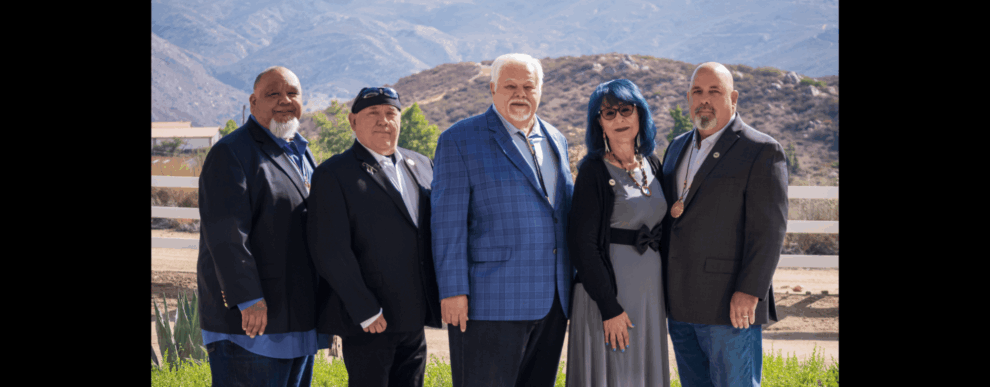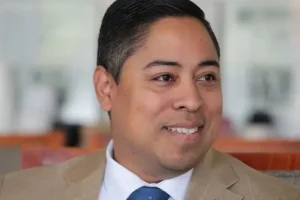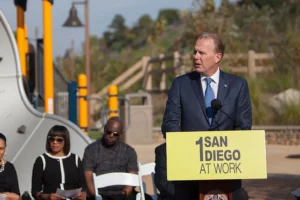They generate hundreds of millions, support thousands of workers, and fund community services at no expense to the taxpayer.
Nestled in the foothills of the Palomar Mountains in northeastern San Diego County, the Rincon Band of Luiseño Indians continues to make significant contributions to both the local economy and the broader Southern California community. While the tribe’s role in local economic and community development is substantial, its contributions are not always in the public spotlight.
Perhaps the new Tribal Chairman, Steve Stallings, can change that.
The tribe recently underwent a leadership transition after the recent passing of longtime Tribal Chairman Bo Mazzetti in May. Stallings, who previously served on the Rincon Tribe’s Council for 10 years and chaired the California Nations Indian Gaming Association, was elected as Mazzetti’s replacement in July.
“It is a profound responsibility to lead the Rincon tribe, and I am deeply humbled to serve in this capacity,” Stallings said. “I look forward to working with our tribal council members, residents and employees to continue the great progress we have made in growing our tribe. Together, we will continue to generate economic prosperity to help our members thrive and strengthen relationships with our neighboring communities throughout the region, all while preserving our rich culture, heritage and traditions.”
Before tribal gaming began in the 1990s, the Rincon tribe community, like many California tribes, faced deep economic challenges. After being pushed from their lands and granted a small reservation in 1875, the Rincon people endured poverty but preserved their identity and worked to rebuild their community. The advent of gaming allowed the tribe to finally generate revenue, support self-governance, and invest in their future.
Today, the Rincon Tribe’s flagship business is Harrah’s Resort Southern California. Harrah’s serves as a major entertainment hub, drawing thousands of visitors each year. But it’s also an employment hub. The resort not only provides jobs for over thousands of employees, both tribal and non-tribal, but also contributes millions of dollars annually to the local economy—supporting industries from construction to hospitality.
An economic report completed in 2022 found that the tribe generated “nearly $600 million in total economic output, supporting more than 4,000 jobs while contributing $231 million in labor income and providing an additional $34 million in tax revenue,” in the span of one year.
The tribe uses that revenue to “provide government services including police and environmental enforcement; economic development; healthcare and culture programs; and a tribal court,” all at no expense to the taxpayer.
They also use that revenue to award grant funding to local nonprofit organizations. Harrah’s alone has Since donated more than $5 million in cash and in-kind gifts to charitable organizations in areas like foster care, education, veterans’ services, and homelessness.
“If we can play a small role when it comes to positively impacting someone’s life through the help of our local nonprofits, then we know that we’re doing exactly what we need to do,” said former Chairman Mazzetti.
Following their ancestors’ footprints, the tribe today remains commitment to environmental stewardship through the Rincon Environmental Department and Rincon C.A.R.E.S. program which together oversee areas such as endangered species protection, water quality, air quality, solid waste management, climate resilience, and community outreach. Sienna Duggan, who coined the C.A.R.E.S. name, said that the initiative invites “all members of the community to play a role in improving the safety of the reservation while also continuing to focus on the cleanliness of the water supply system.”
The tribe’s efforts serve as a model for how Native American tribes can positively impact the broader community. It’s something of a shame, then, that more San Diegans—even those that have heard of Harrah’s—do not know more about the Rincon tribe itself.
But, once more, perhaps that could change in time. Recently, the Oceanside Historical Society celebrated the opening of its brand new History Center, with a ribbon cutting event. Rincon tribe members were invited to speak and let their presence—and historical perspective—be known.
“It is so important to celebrate and share in events like this, but it is important that we tell our own truth. We are the first people and this area’s historical narrative starts with us,” said Rincon Tribal Councilwoman Laurie Gonzalez.















Add Comment